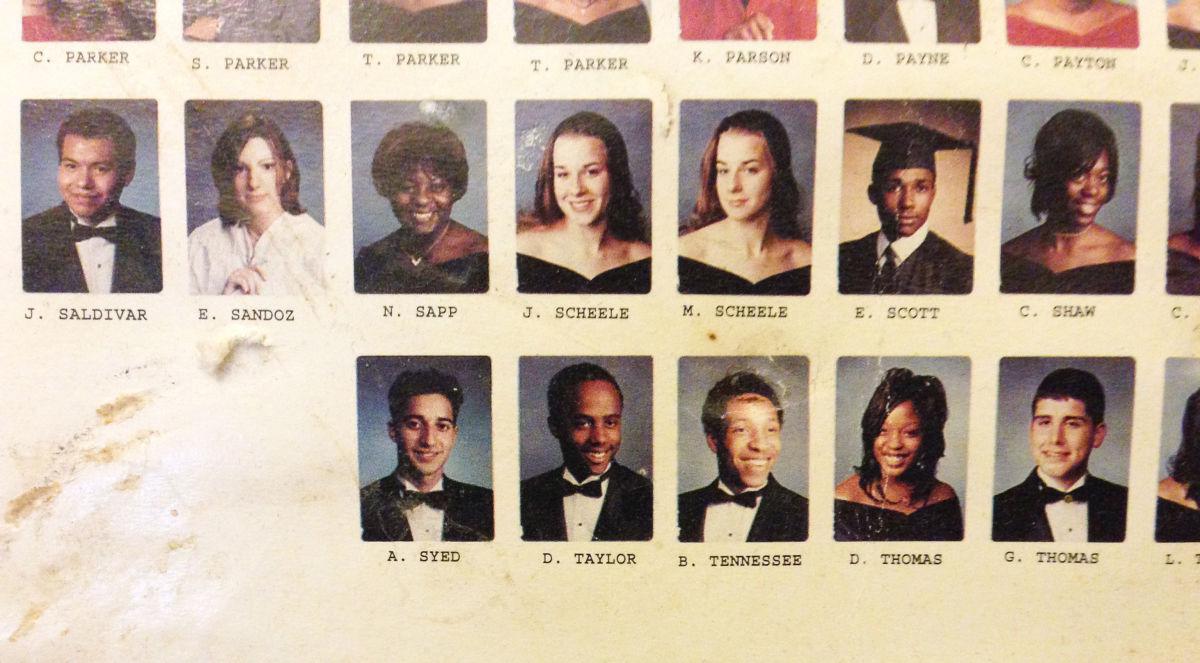The Intercept posted Part 3 of its interview with Jay Wilds, the enigmatic state witness made a nation-wide object of curiosity by the podcast Serial, in the last few hours of 2014. This time, the conversation focused on Wilds’ reluctant life in the media spotlight, and especially in the sightlines of Reddit, some of whose users seem bent on cracking the 1999 case by scrutinizing present-day Wilds, now in his mid-30s, and his family. Wilds continues to express anger, resentment, and distrust when it comes to Serial’s Sarah Koenig. He underlines the victimization of his wife and children and speaks of Adnan Syed with a fierce, even alpha-male contempt.
Wilds is spooked—and his wife “devastated”—by vigilante detectives who appear to be pulling his personal information off of his formerly public Facebook profile and other online sources. (It’s not clear that Wilds is aware of this, but appeals documents related to the Syed trial are available through sources such as WestLaw; criminal records for the state of Maryland are freely available online.) “The thing that’s been the most scary for my family has been people showing up at my house,” he tells Vargas-Cooper. “Twice I’ve caught people videotaping our home and me.” The couple has filed a police report and no longer allows their kids to walk to school alone. Wilds also believes that he may have been fired from a construction job because of the podcast. He worries that his reputation will dissuade donors from supporting his wife’s nonprofit.
This is sad and upsetting to read, especially because, as Wilds says, “my family are normal, regular people,” far distant from whatever happened to Hae Min Lee in 1999. “I know my criminal record is out there,” he says. “One of the charges is domestic violence. But I was never convicted. It was an argument over a set of keys with an ex-girlfriend I wasn’t getting along with.” Wilds has a right, of course, to go about his day free of persecution and harassment. Yet if the man whose spasmodic, mercurial testimony put Syed away for life is aware of the irony of him protesting a rush to judgment or singing the praises of second chances, he doesn’t show it.
Then there are the excerpts from Wilds’ correspondence with Sarah Koenig. “I feel like she created an evil archetype of me and sensationalized my motives,” Wilds tells Natasha Vargas-Cooper. Given that Koenig tried multiple times to elicit his side of the story and spoke of him as a compelling, believable presence in “The Deal With Jay,” it’s hard to see how this is true. After Wilds reached out to Serial about the stalking, Koenig replied that no one involved in the project had been leaking his private information to Reddit, but Wilds didn’t believe her, and said as much. She responded:
You seem to be under the impression that I want to do you harm, or have a secret agenda or have purposely withheld information to make you look bad, or have knowingly reported things that aren’t true. None of that is correct – in fact, the opposite it true. I realize you might not be able to accept that right now – or perhaps, ever – but my intention has been the same from the beginning: To get the story right, and to treat everyone fairly. There are so, so many things I could have reported, but didn’t, because they seemed potentially damaging or unfair, and they weren’t directly related to the crime. Not just about you, but about other people involved in the case. In other words, I’m not out to get anyone, or to damage anyone’s reputation. I only reported information that we deemed relevant to understanding the case.
Wilds tells Vargas-Cooper he is unpersuaded.
Next, after a moment of melodramatic flair in which a bravado Wilds says he’d rather “live like a dog in the bushes” than change his name, Vargas-Cooper brings up Stephanie. (She prefaces the question by insisting she has “no personal interest” in the subject but wishes to “give [readers] what they want.”) Did Wilds, as Koenig lightly implied and Internet theorists have riffed on feverishly, feel threatened by Syed’s friendship with his then-girlfriend?
Here’s Wilds:
[Jay laughs] I dated Stephanie from junior high until about junior year of college. I loved her a lot, but if there was any risk of infidelity it was going to come from me. I know they made a big deal on the podcast about her and Adnan both getting crowned homecoming court [Ed. note: the two were crowned prom prince and princess], but I was like, ‘Yeah baby! Go get your crown!’ I knew what that crown was coming home to.
This answer I found frankly baffling. The infidelity “was going to come from me”? “I knew what that crown was coming home to”? It reads as macho posturing—remnants of high school rivalry apparently still raw. None of which means Wilds is lying about what happened back in January of 1999, obviously. Wilds recounts an episode a few nights after the murder in which Syed allegedly drove Stephanie to Wilds’ house and “said something like, ‘You know, I can be alone with her whenever I like, because me and Stephanie are friends.’” “I took that as a threat,” Wilds explains to Vargas-Cooper. “Not that he could steal my girlfriend, but that he could hurt her.” In his recollection, he then bravely told Syed “to his face”: “That’s not a very smart thing to say to me.”
Though these Intercept interviews do not incriminate their subject of anything more than lying about certain details under oath, they fail to cast much clarifying light. And for me, at least, they worked against Wilds’ apparent goal of provoking sympathy. I’ve slipped them somewhere into the motif of facts and feelings Serial has seeded in my brain—a design that moves and blurs with every new inspection.
